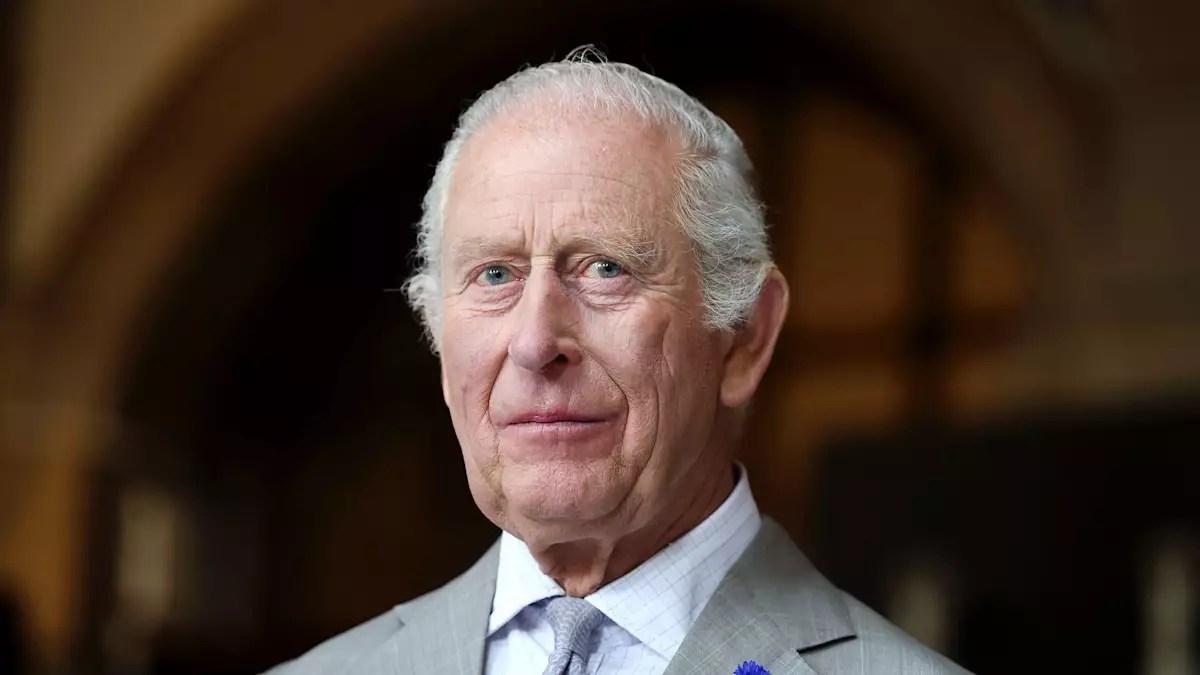In an age where the royal family often appears as an untouchable entity, King Charles III has broken down some of those barriers by sharing a rare glimpse into his personal battle with cancer. During a recent visit to Bradford with Queen Camilla, Charles provided an update on his health that resonated deeply with attendees and the public alike. His candid remark about being on the “better side” of his cancer journey not only reflects his resilience but also embodies a relatable experience that many face in their own struggles with illness.
This encounter took place at the Impact Hub Yorkshire, an initiative focused on supporting local businesses and diverse communities. Upon meeting Safeena Khan, a florist, the King engaged in a heartfelt exchange that illuminated his character beyond the crown. It was refreshing to see a figure so high in stature share small moments of vulnerability and authenticity; it reminds us that behind the royal façade, there exists a human being battling significant challenges.
Health Challenges and Public Engagement
The gravity of King Charles’s health challenges cannot be overstated. His recent hospitalization and the subsequent updates have fueled public concern about the monarch’s well-being. Official communications have typically been sparse, as royal aides often prioritize maintaining an air of privacy. Yet, it is precisely this scarcity of information that amplifies the significance of his comments. When Charles affirmed, “I’d like to think I’m on the better side,” it was not just an endearing moment; it was a statement filled with hope—a sentiment that many viewers and patients can easily relate to.
During his hospital stay earlier this year, the palace confirmed that Charles was observed by medical professionals for a brief period. These instances of vulnerability do little to hinder his royal responsibilities; rather, they add depth to his public image. It’s a testament to his dedication that he continues to fulfill his duties even in the face of daunting health issues, showing an unwavering commitment that is commendable.
Connecting Over Shared Experiences
An interaction that particularly stands out occurred at a Buckingham Palace Garden Party, where King Charles conversed with Stamford Collis, a 22-year-old international relations student undergoing cancer treatment. Their exchange offered insights into Charles’s personal philosophy about health and well-being, particularly regarding nutrition. Charles’s observations about how diet can impact recovery underscore an essential truth: health is multidimensional. It goes beyond just medical treatment; mental well-being, lifestyle choices, and community support play integral roles.
This encounter not only demonstrates the King’s empathetic nature but also serves to break the barrier between the monarchy and the average citizen. For a young man battling cancer, having the King’s attention during a vulnerable moment can be inspiring. By sharing his own journey and encouraging dialogue about health, King Charles III is advocating for openness regarding illness—something that is often stigmatized.
The Role of Royalty in Modern Society
What remains striking in all of this is how King Charles embodies the evolving role of royalty in contemporary society. Traditional views often portray monarchy as distant and insulated, yet Charles seems intent on bridging that gap. His actions send a clear message that, despite the luxuries and privileges associated with royalty, the struggles of health and wellness are universal.
Moreover, Queen Camilla’s remarks hint at the King’s tireless work ethic—a quality that could easily be misinterpreted as neglecting personal health for duty. She reportedly admits to “begging” him to slow down, which raises a vital conversation about the balance between duty and self-care, particularly for those in leadership roles. It poses an intriguing question for contemporary societal expectations: should leaders, regardless of their title, prioritize their health and well-being?
As he continues to navigate his responsibilities while facing cancer, King Charles’s story serves as a powerful narrative of resilience. It represents not only a personal journey but also larger conversations surrounding health, duty, and the human experience. The monarchy may be a symbol of tradition, but through candor about his struggles, Charles is establishing a modern legacy defined by empathy, responsibility, and authenticity.


Leave a Reply